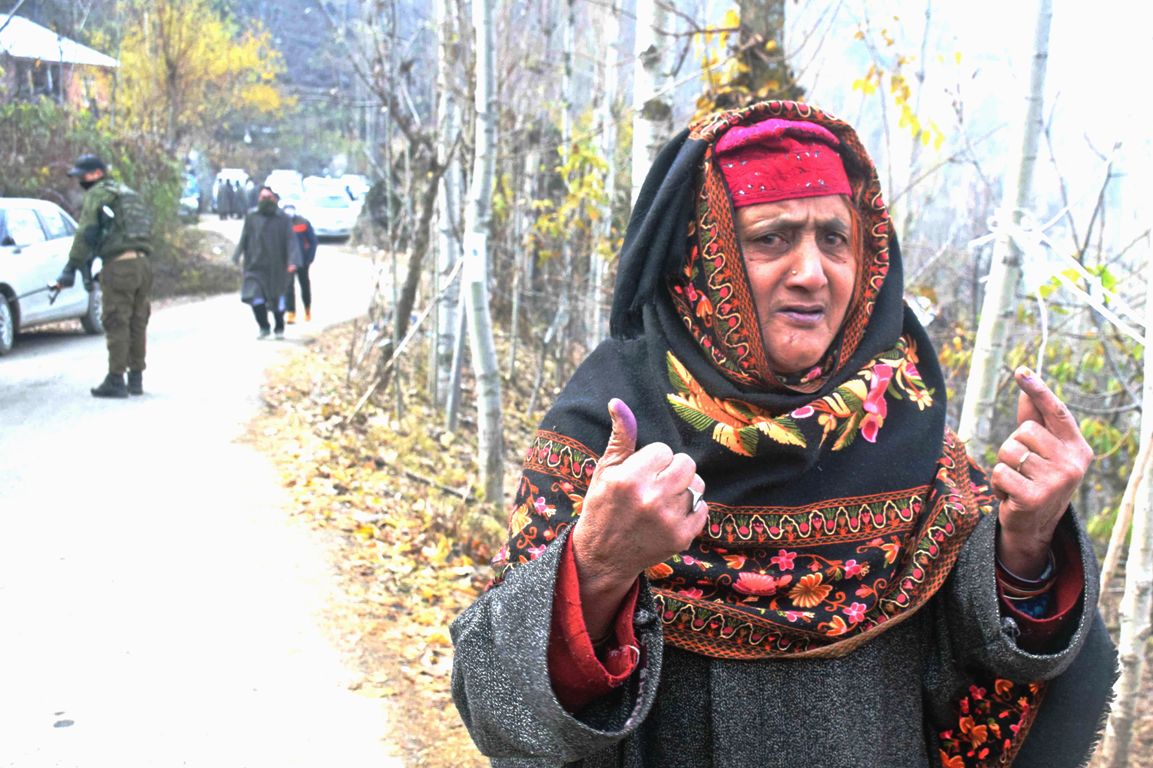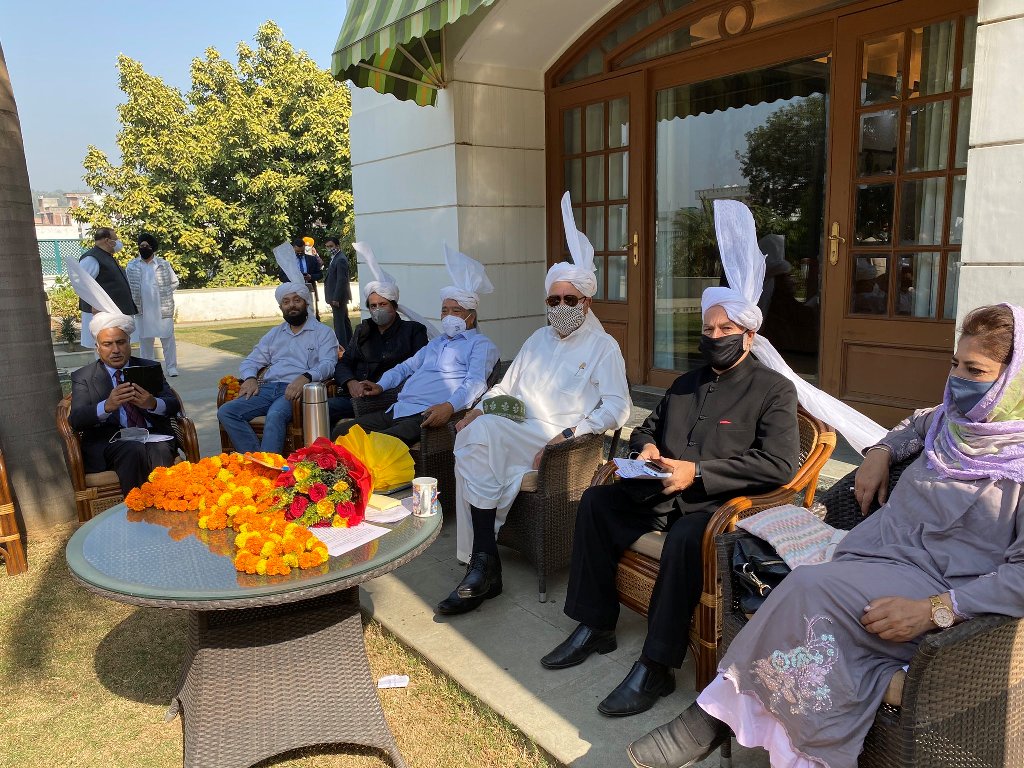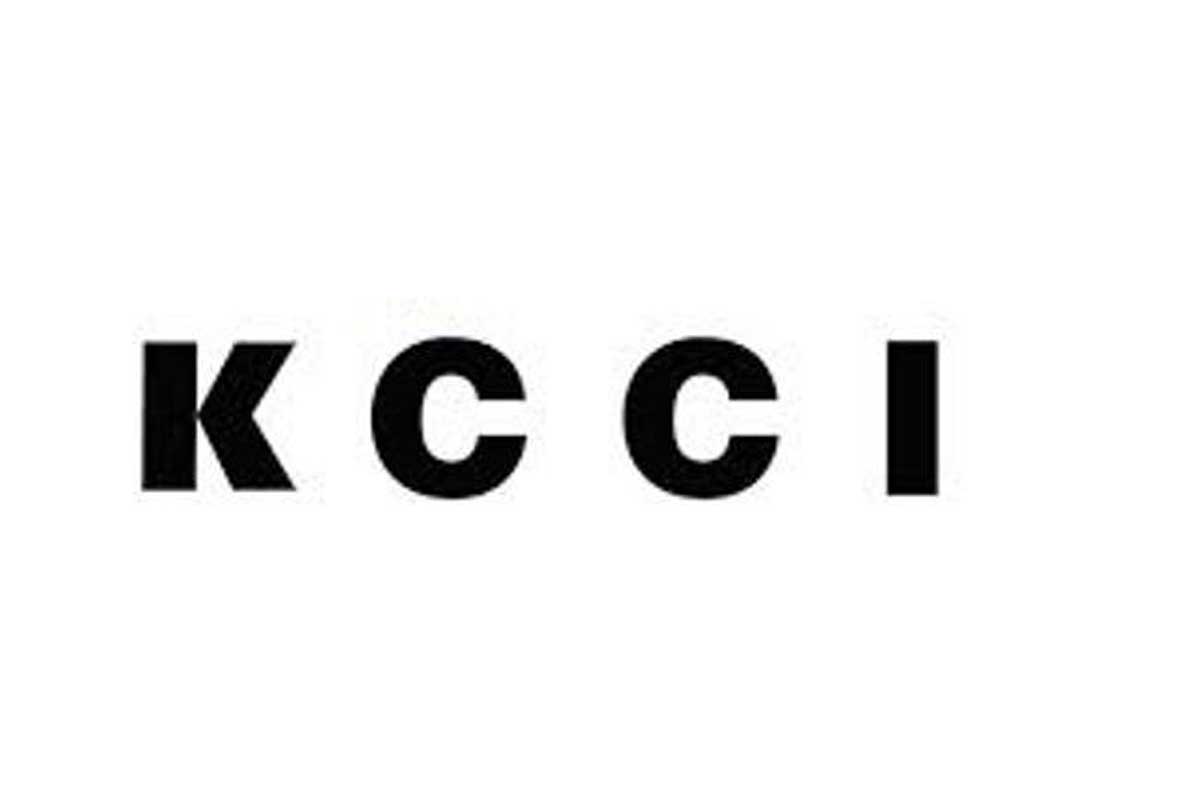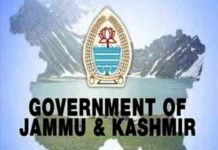by Saima Bhat
SRINAGAR: In the ongoing District Development Council (DDC) elections – the first major electoral process and participation after the abrogation of Article 370 and 35A, the system and dominant stakeholders are not on the same page. This is perhaps why it is slightly a different election than all earlier exercises.
Detained for several months, the August 5 move led once bitter opponents to cobble an alliance against, what they say, the “divisive forces” and “fight for the restoration of rights”.

While lamenting over the loss of special status, unlike the boycott of Block Development Council (BDC) polls in the wake of the abrogation of Article 370, the parties decided to fight the District Development Council (DDC) polls to keep “BJP away”.
Out in the field under pressure to make a point, the major parties having a stronghold in Kashmir for the first time put up a united front and formed the People’s Alliance for the Gupkar Declaration (PAGD) to counter the BJP and its alliance in the region while demanding the restoration of the pre-August 5 status for J&K.

But with the formation of PAGD, the Kashmir specific parties merged into one force, leaving the opposition to BJP and Altaf Bukhari’s Apni Party.
Jammu too emerged divided. Though fighting BJP, the stronghold of the party in Jammu is not an easy task for PAGD except Muslim belts, but the regional parties specific to Jammu are taking the right-wing party head-on. Not formally together, the two new Jammu based parties are ruffling feathers. The voice in the region grows shriller not for the restoration of special status but a full-fledged statehood to Jammu. Sharing the cadre and character with BJP, the two newly formed parties in Jammu are posing a challenge and fighting in Jammu only. These include Dogra Swabhiman Sangathan (DSS) led by a former minister who was once part of both Congress and BJP, Lal Singh, and another party is IkkJutt Jammu, a social organisation which recently launched a political party.
Once “happy” over the scrapping of special status, the parties other than BJP feel “insecure” due to new laws and believe “the people of Jammu would be rendered homeless.” The two parties accuse both Congress and BJP to “run J&K through Kashmir.”
The Discontent
As political parties plunged into elections, the Kashmir players under the umbrella of PAGD accused the administration of being “partisan” and alleged BJP use “tactics” to thwart their participation.
Referring to various instances, the parties including National Conference and Peoples Democratic Party alleged their candidates were confined to distant hotels under the garb of security and barred from campaigning freely. “It is not a level playing field,” said one of the participants.

Once deciders of their schedule, this time lack of enthusiasm was more evident. The leaders of various parties accused that “police and administration restrict the hours of campaigning and not allow their leaders to move freely.” This, they said was being done to “note their movements.”
Mehbooba Mufti claimed, “GOI sabotaged participation of non-BJP parties in DDC polls.”

“BJP and ‘Kings party’ candidates and their junior-level workers are provided individual personal security and bulletproof vehicles, while all others are hounded to far away accommodations. Is this the ‘new mantra’ of providing a level playing field? asked NC’s provincial president, Nasir Aslam Wani. He alleged that “PAGD candidates were not allowed to campaign.”
“I have never witnessed this kind of electioneering not since the political process started after the eruption of militancy,” he added.
Seeking intervention, People’s Alliance president Dr Farooq Abdullah wrote a letter to J&K election commissioner KK Sharma asking for “transparent security arrangement across the board.”
Reacting to the accusation, IGP Kashmir Vijay Kumar told the media that providing security to each candidate contesting the polls is difficult. “We are providing them collective security and they are being put up in secure areas.”
“Punished for Participation”
Once Chief Minister, backed by the BJP, Mehbooba Mufti on Twitter accused the government of using various agencies for “punishing the participants.” In a tweet, she wrote, “Kashmiri leaders are being harassed by GOI’s pet agencies like CBI, NIA & ED. They are being hounded & punished for participating in DDC polls. BJPs designs of foisting puppets & proxies have been derailed much to their chagrin.”

Mehbooba was reacting to the development after the government started to make public a list of beneficiaries of the Roshni Act, now termed as ‘Roshni Act fraud’, which includes businessmen, bureaucrats and politicians. In another list of persons charged with the encroachment of state land, many other politicians, including the PAGD president Farooq Abdullah, have also been named.
A few days later, former minister and Congress leader Taj Mohiuddin was booked by the Central Bureau of Investigation CBI). Taj was booked after he announced filing nomination papers from the Uri constituency.
In another instance, a day after filing his nomination papers for DDC elections, PDP youth president Waheed Parra was questioned for two days before being formally arrested in a militancy-related case. Waheed, as tweeted by Mehbooba was applauded by then home minister Rajnath Singh for strengthening “democracy in J&K.”
“I can personally vouch for Waheed’s integrity, honesty & character,” said Mehbooba.
In between as the polls were about to start, union home minister Amit Shah called the Gupkar alliance including three former chief ministers as “Gupkar Gang”, which, he claimed, had set out to bring back an era of “turmoil” in the Valley, a charge that invoked a sharp response from J&K’s mainstream parties.
The entire leadership managing Kashmir for decades were shown in a bad light, said a senior journalist. “It is not an easy thing to discredit major political parties including three former chief ministers,” he said and added, “this is the first time in my reporting career that I have seen all Kashmir parties together without being backed by Delhi in any way.”















